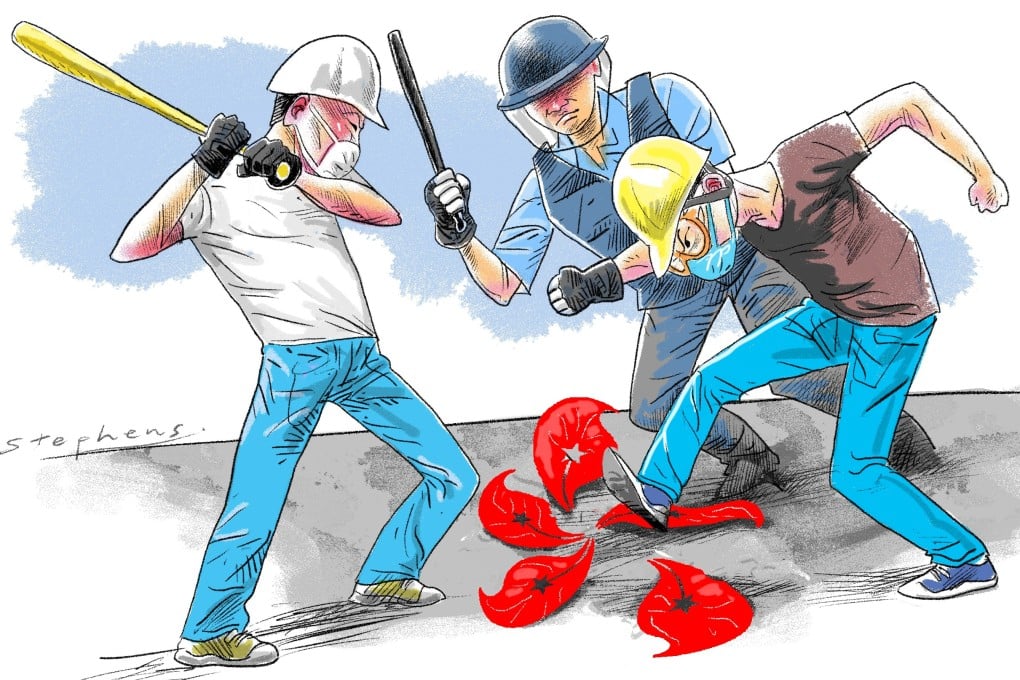Advertisement
Opinion | Hong Kong protesters and police are locked in a circle of escalating violence – a way out must be found
- In the past, violence was unnecessary – peaceful protests led to the shelving of the Article 23 and national education bills. But times have changed in China – and therefore Hong Kong
- How about an amnesty for protesters limited to a specific period? Or a commission of inquiry that does not name names? Whatever it is, a solution is needed urgently
Reading Time:4 minutes
Why you can trust SCMP

Hong Kong used to be so peaceful, which made us all proud. When relatives visited 15 years ago, I let my nephew and my daughter, both 12 years old, take a taxi from our home in Mid-Levels to Pacific Place on their own. All we asked was that my daughter call us on her mobile phone when she got there. My nephew, born and raised in Los Angeles, could not believe it.
But now, violence is killing Hong Kong. Protesters, police and organised gangs have engaged in violence against each other, innocent civilians and public property. Even a district councillor and an official at Beijing’s liaison office are suspected of encouraging violence. Everyone seems to be getting away with it.
During Occupy Central five years ago, a police officer slapped a protester and was sentenced to three months in jail. Now, police violence erupts with impunity. Citizens are afraid to go out at night and particularly at the weekend. Come Saturday evening, the city is a ghost town.
Advertisement
Even a lifeguard at my health club, who was born on the mainland, expressed fear that the police will turn on him, as they have on innocent MTR passengers. A foreign academic at Hong Kong University of Science and Technology, recruited from the US, is considering leaving because it no longer seems safe for children.
Leaned on by the local government and Beijing to play the “heavy” in this political drama, the police have lost most of their credibility. They are seen as lackeys of the state, not protectors of the cherished rule of law. In particular, they are excoriated for beginning the spiral of violence on June 12, when excessive police force first reared its ugly head.
Footage taken at the end of the “million person march” of June 9, widely seen as a peaceful demonstration, shows protesters attacking a lone police officer, an event some say led to the tough response to the protests three days later.
Advertisement
Select Voice
Choose your listening speed
Get through articles 2x faster
1.25x
250 WPM
Slow
Average
Fast
1.25x
